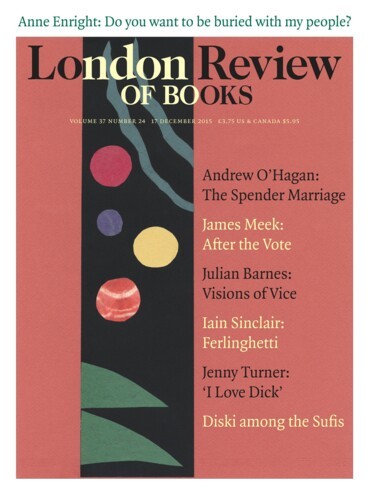The government got the majority that allows it to bomb Islamic State (or Daesh as we are now enjoined to call it) in Syria, but I have rarely listened to a debate in which there was such lack of clarity about the issues at stake, as if we were somehow uninvolved observers of IS in Syria and any resolution to bomb would imply a new war, with significant new perils and threats of retaliation.
The reality is much simpler. The UK has been at war with IS for over a year, since we started our bombing campaign against it in Iraq, at the request of the Iraqi government. Since then, we have extended our campaign to cover IS’s locations in Iraq and Syria across their so-called caliphate. This involves reconnaissance, surveillance, targeting, intelligence gathering and even drone attacks. The only activity we have not been carrying out in Syria that we have in Iraq is bombing raids from manned aircraft; but plenty of others in the coalition have been doing that, acting on our intelligence feeds.
The best speech I heard on this point during the debate on 2 December came not from the government but from Margaret Beckett. As she said, we are already a target; we are already involved; we have a UN resolution not just permitting but urging us all to do what we can to defeat IS and remove its safe haven in Syria and Iraq. Militarily, legally and morally, we have been at war with IS all along. I think there is a discussion to be had as to whether the vote in Parliament was necessary at all.
The focus on the military activity has raised expectations that it will somehow solve the problem; it won’t. The air campaign has been going on for some time without decisive effect; our joining the bombing will only marginally increase the damage the coalition can cause from the air.
But the real point of the vote wasn’t – as many opponents of the motion in the Commons seemed to imagine – to enable a complete military solution. The government unfortunately encouraged this misconception by pretending to a strategy that lacked credibility. Cameron’s overplaying of the 70,000 supposed moderates ready to overthrow IS has dangerous echoes of Blair’s dodgy dossier attempting to justify the invasion of Iraq.
The point, rather, was to send a political message: that the UK is fully committed to the fight against IS. This, it is hoped, will give Britain a louder voice at the negotiating table during the talks in Vienna. There will need to be some hard bargaining there to create a coherent political coalition from countries including Russia, Turkey, Iran and Saudi Arabia, given their competing state and sectarian goals; and, in time, the Syrian regime will need to be included. Only when all parties accept IS as a shared top-priority threat will it be possible to co-ordinate the activities of their proxy forces; only then might the 70,000 become more than an aspiration.
This sort of pressure, together with attacks on its funding, information campaigns and economic infrastructure, should lead to the defeat of IS in the land it currently occupies in Syria and Iraq. But this focus on territory should not obscure the threat that comes not from IS itself but from the ideas that sustain it.
IS’s ideological roots are in Wahhabi Salafism, the ultra-conservative heterodox movement within Sunni Islam and the official religion of Qatar and Saudi Arabia. It is now widely recognised that the Saudi and Qatari proselytisation of Wahhabi Salafism through madrassas across the world has altered and continues to alter the balance of observance of Islam. Dependence on Saudi oil has made the West bite its lip about the export of Wahhabi ideology, but its consequences are now being more openly admitted and resented. This is from a recent opinion piece in Die Welt:
The evidence of the BND [the German Federal Intelligence Service] about Saudi Arabia should alarm us. We are dealing with a medieval regime that sends death squads all over the world and is warring with its own youth. It is both brave and unusual that the BND publicly and so critically speaks about a country that is officially still a close trade and political partner of Germany.
A similar dilemma is apparent in British politics. The recent spat between the Tory ministers Michael Gove and Philip Hammond over the cancellation of a contract to train Saudi prison guards exposed the clash between morality and mercantilism. The balance may be shifting as security pragmatism is added to moral distaste to tip the scales in favour of getting tough on Saudi Arabia. The short-term demand for high-tech armaments contracts and longer-term oil and gas reliance may be about to be outweighed by the cost and threat of terrorism and the feasibility of shale energy supplies.
External pressure will play badly inside the notoriously private and secretive Saudi royal family. But the issue cuts to the heart of Saudi’s identity; how it is resolved is of importance to the whole world. Curtailing the spread of Wahhabism without destroying the legitimacy of the House of Saud will be a difficult trick to pull off, but on its success rests the fate of the fight against IS. It will take the religious authority of the Saudi state to delegitimise the violent ideology of IS and other such groups and to halt the global spread of Wahhabism.
Send Letters To:
The Editor
London Review of Books,
28 Little Russell Street
London, WC1A 2HN
letters@lrb.co.uk
Please include name, address, and a telephone number.

